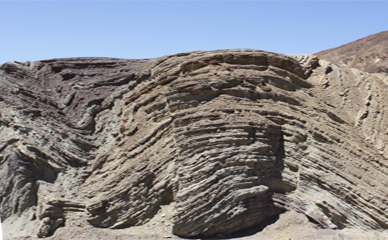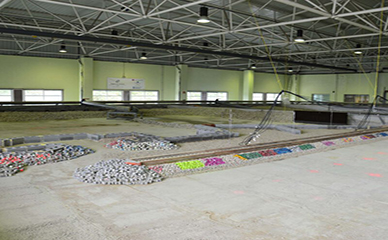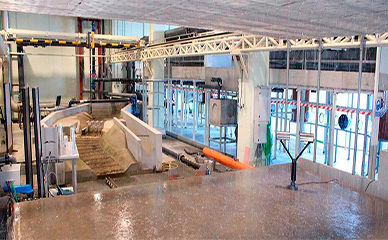
Laboratory
The need to treat wastewater is now a fact that no one questions anymore. Preserving and recovering our aquatic ecosystems and the need to maintain the water resource with sufficient quality for other uses has led to the appearance of abundant legislation and regulations, a large part of which oblige wastewater discharges to the receiving environment after receiving increasingly intense and complex treatment.
Areas of application
In wastewater treatment:
• Carrying out special tests with new processes (pilot plant scale) for the purification of wastewater with both suspended biomass and biomass fixed to support.
• Studies of treatability and biodegradability of waste water.
• Optimisation of already implemented treatment processes.
• Development and adaptation of simulation or control software for biological purification processes.
• Development of innovative processes for the treatment of urban and industrial waste water.
• Evaluation of proprietary technologies with analysis of improvements.
Infrastructure
A «wastewater treatment process testing unit» is available. The unit consists of a modular structure that allows the configuration of different types of processes, both physical-chemical, biological, or combinations thereof. By means of a complex control system, different operating strategies can be imposed, while the monitoring of process parameters and yields is carried out by means of continuous measurement probes (COD, ammoniacal nitrogen, nitrates, dissolved phosphorus, pH, OD, conductivity, ORP, turbidity, solids concentration in mixed liquor, etc.). The maximum flow rate is 3 m3/hour. The control equipment can be moved to real treatment plants in operation.
Other equipment in fields of interest: high sensitivity fluorometer, automatic samplers (3 equipments), area-speed flowmeters (3 equipments), multiparametric probes (2 equipments).
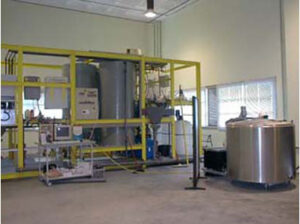
Treatment Plant
The test unit consists of a modular structure that allows the configuration of different types of wastewater treatment processes (urban or industrial). The processes can be physical-chemical, biological or combinations thereof. The control parameters that are measured continuously are the following:
– In reactors: Flow rates, PH, conductivity, suspended solids in liquor mixture, REDOX, OD, temperature, aeration flow.
– In affluent/effluent: COD, ammoniacal nitrogen.

Biological Treatments
The test unit can handle flows of up to 3 m3/hour. The main elements of it with the following:
– Pre-treatment module (micro-screening).
– Physical-chemical process (coagulation-flocculation).
– Primary decantation system.
– Multiple bed to house biological reactors.
– Secondary decantation and recirculation system
– Air supply system.
Instrumentation

Multiparametric Probe
Sensor capable of working in any type of water, whether fresh, salt or waste water.
It has self-cleaning heads.It can record up to 14 parameters simultaneously. It can record all parameters at
programmed intervals (with intervals of 15 minutes can record for 30 days) reaching 150,000 readings.
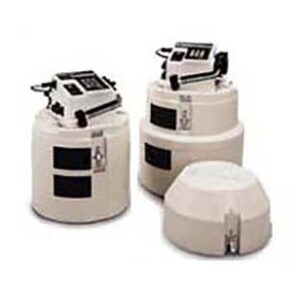
Sampler
Sampler that provides great possibilities of use. It has the capacity to repeat the sampling for a period of time as well as dome during the passage of a constant flow. Its lightness and robustness make it ideal for use in any environment and for various purposes: biomonitoring of water quality, sewage overflows…


